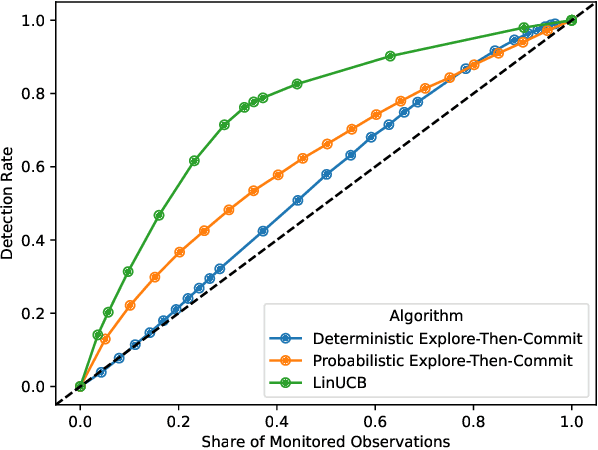Reinforcement Learning for Efficient Toxicity Detection in Competitive Online Video Games
Paper and Code
Mar 26, 2025



Online platforms take proactive measures to detect and address undesirable behavior, aiming to focus these resource-intensive efforts where such behavior is most prevalent. This article considers the problem of efficient sampling for toxicity detection in competitive online video games. To make optimal monitoring decisions, video game service operators need estimates of the likelihood of toxic behavior. If no model is available for these predictions, one must be estimated in real time. To close this gap, we propose a contextual bandit algorithm that makes monitoring decisions based on a small set of variables that, according to domain expertise, are associated with toxic behavior. This algorithm balances exploration and exploitation to optimize long-term outcomes and is deliberately designed for easy deployment in production. Using data from the popular first-person action game Call of Duty: Modern Warfare III, we show that our algorithm consistently outperforms baseline algorithms that rely solely on players' past behavior. This finding has substantive implications for the nature of toxicity. It also illustrates how domain expertise can be harnessed to help video game service operators identify and mitigate toxicity, ultimately fostering a safer and more enjoyable gaming experience.
 Add to Chrome
Add to Chrome Add to Firefox
Add to Firefox Add to Edge
Add to Edge